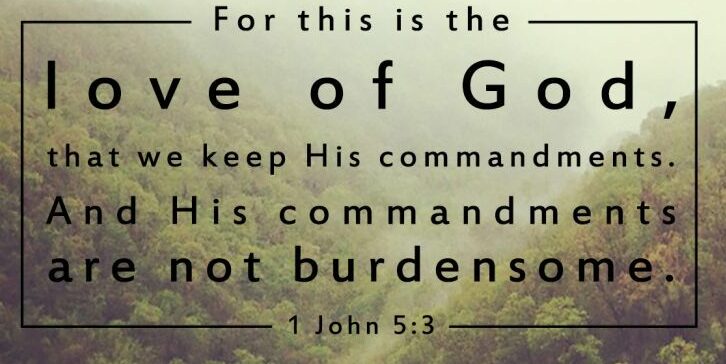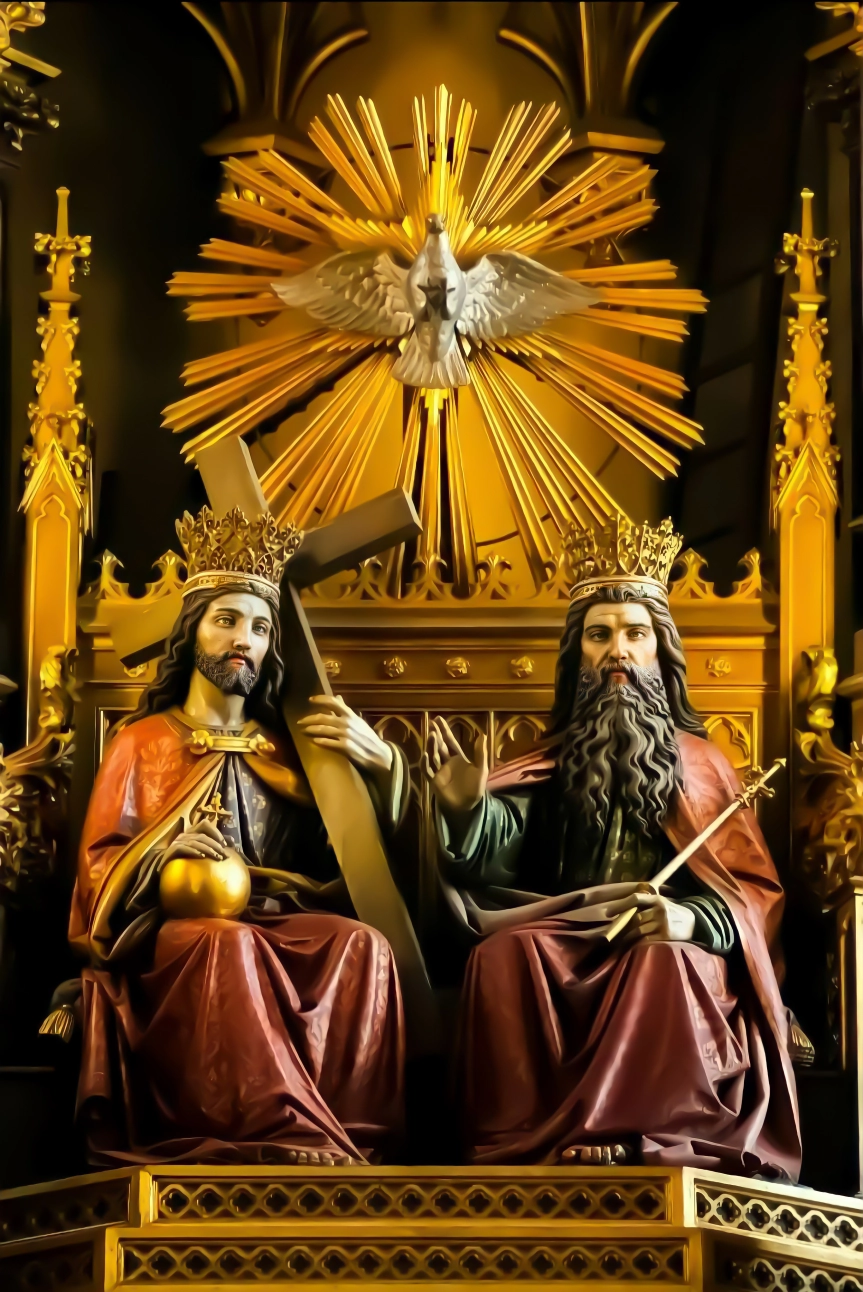Introduction
Our God is rooted in a profound understanding of His divine nature as the supreme and eternal being. Central to Catholic theology is the belief in God as a loving Father, infinitely good, wise, and powerful. This essay will explore the Catholic perspective on God’s attributes, His relationship with humanity, and the significance of the Holy Trinity.
Attributes of God:

Our God is considered omniscient, possessing perfect knowledge of all things. His wisdom is unfathomable, guiding the universe and human history. Additionally, God is omnipotent, having limitless power to create, sustain, and transform. This power is displayed through the miracles and workings of divine providence in the world. Moreover, Catholics believe God is omnipresent, being present in every place and intimately aware of every individual’s thoughts, actions, and needs.
The Holy Trinity:

At the heart of Catholic belief is the doctrine of the Holy Trinity, which defines God as existing in three distinct persons: the Father, the Son (Jesus Christ), and the Holy Spirit. This belief underscores the communal nature of God and His infinite love. The Father is the creator and sustainer of all things, the Son is the Word made flesh who redeemed humanity, and the Holy Spirit is the advocate and helper who guides and sanctifies believers.
God’s Relationship with Humanity:

Catholicism teaches that God’s love for humanity is immeasurable and unconditional. He desires a personal relationship with each individual, inviting them to experience His grace and participate in His divine life. Through the incarnation of Jesus Christ, Catholics believe that God reveals His love for humanity in a tangible and relatable way. Jesus, both fully human and fully divine, bridges the gap between God and humanity, offering redemption, forgiveness, and eternal life.
Man’s primary goal is rooted in the belief that human beings are created in the image and likeness of God, with a purpose and destiny that transcends the material world. This essay will explore the Catholic perspective on man’s ultimate goal, the pursuit of holiness, and the path to union with God.
God: Man’s Ultimate Goal:
According to Catholicism, man’s ultimate goal is to attain union with God. This union, often referred to as “divinization” or “deification,” is the culmination of the human journey and the fulfillment of the deepest longings of the human heart. It is through this intimate union with God that man finds true happiness, fulfillment, and eternal life.
God: The Pursuit of Holiness:
To achieve union with God, the Catholic Church teaches that man must strive for holiness. Holiness is the process of conforming one’s life to the will of God and growing in virtue. It involves cultivating a deep relationship with God through prayer, sacraments, and the study of Scripture. Through the power of the Holy Spirit, Catholics believe that they can cooperate with God’s grace and transform their lives, becoming more like Christ.
The Path to Union with God:
The Catholic Church provides a pathway for individuals to attain union with God. This pathway includes various spiritual practices and means of grace. The sacraments, particularly Baptism and the Eucharist, are considered essential for nourishing and strengthening the soul. The sacraments of Reconciliation and Anointing of the Sick provide avenues for healing and forgiveness. Additionally, the practice of regular prayer, participation in the liturgy, and works of charity are important components of the journey towards union with God.
God: Living a Moral Life:

Integral to the pursuit of union with God is the moral aspect of human life. Catholics believe that living a life of moral integrity and virtue is essential for growing in holiness and deepening one’s relationship with God. The Ten Commandments and the teachings of Jesus Christ serve as guidelines for ethical living, promoting love for God and neighbor. Catholics are called to imitate Christ’s selflessness, humility, and love in their actions and interactions with others.
Man’s primary goal centers on the pursuit of union with God. This goal is achieved through the cultivation of holiness, the practice of spiritual disciplines, and the living of a moral life. By seeking to conform their lives to God’s will and growing in virtue, Catholics believe that they can experience the transformative power of God’s grace and ultimately attain eternal life. In this pursuit, Catholics find purpose, fulfillment, and a profound sense of communion with their Creator.
God’s Justice and Mercy:
In Catholic understanding, God’s justice is perfectly balanced with His mercy. While God is just and holds individuals accountable for their actions, He is also infinitely merciful. The sacraments, particularly the sacrament of Reconciliation, provide a means for believers to seek forgiveness and reconciliation with God. Through sincere repentance, Catholics believe they can experience God’s loving mercy, transforming their lives and restoring their relationship with Him.
Conclusion:
The Catholic view of God is characterized by His infinite love, mercy, and power. Catholics understand God to be a loving Father who desires a personal relationship with each individual. The belief in the Holy Trinity underscores God’s communal nature and His self-revelation in Jesus Christ. Through His justice and mercy, God offers forgiveness and redemption to humanity. He invites them to share in His divine life. In living out their faith, Catholics strive to align their lives with God’s will, worshiping, obeying, and serving Him. This is an expression of gratitude for His boundless love and sovereign mercy.


61 thoughts on “GOD, All Mighty, All Powerful, All Knowing: Who, Why, And What?”